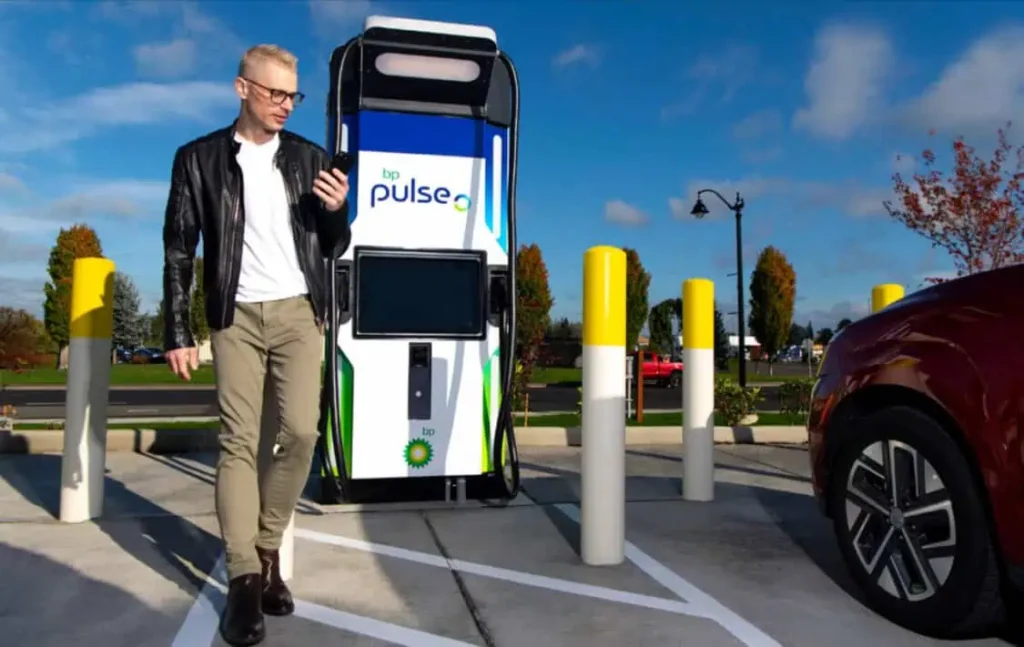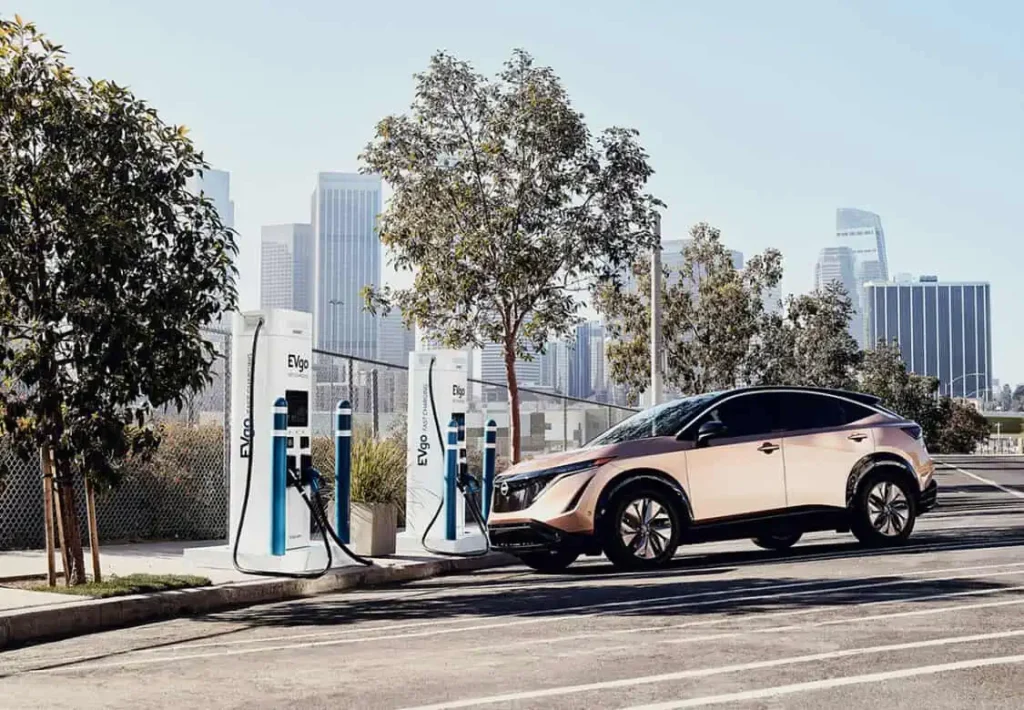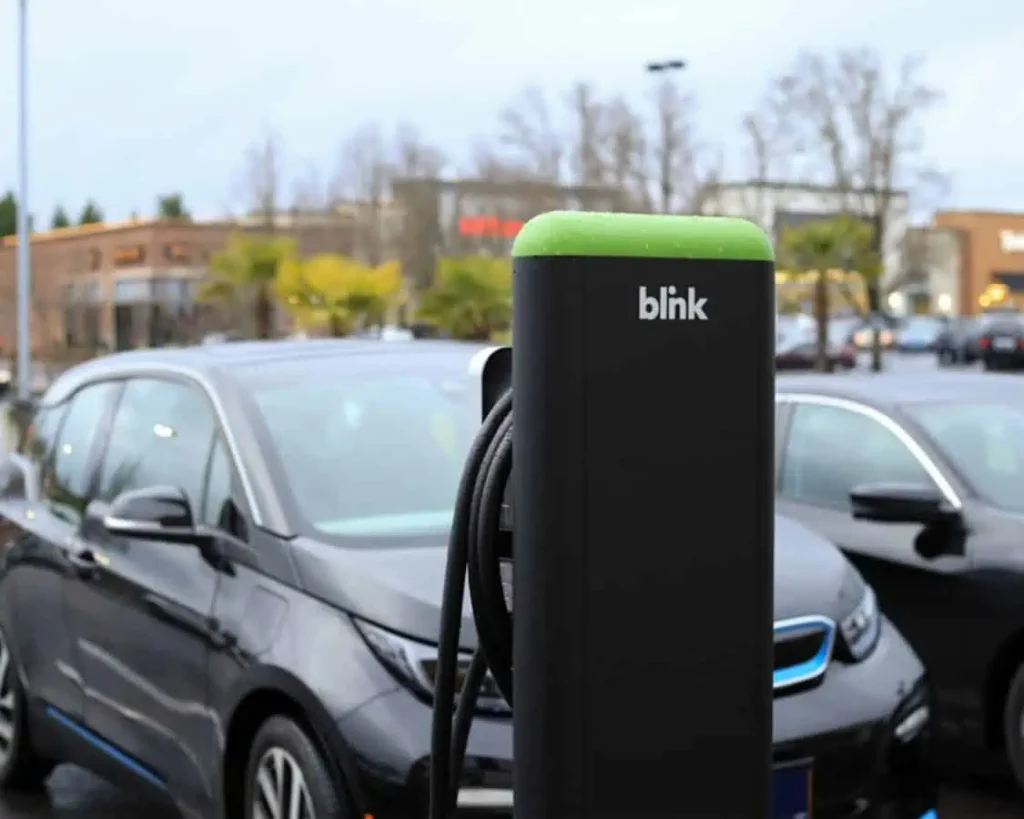CA Receives $150M for EV Charging, Yet Barriers Remain
EV charging can be seen frequently in a wide variety of locations in California’s big cities. California’s adoption rate is far ahead of all other states as of August 2024, yet more efforts are needed to boost the Golden State’s electric vehicle (EV) adoption. Help with breaking down barriers in EV adoption in the rest of the country is very much needed as well, especially in those states suffering from low adoption.
A wide variety of barriers are facing early EV adopters in America in 2024. Most significant among those are lack of public charging, high EV prices, and EV charging reliability. Public charging is important for several reasons. Most EV drivers charge at home currently, as the least expensive and most convenient option. However, multifamily dwellers, such as condo and apartment residents, rely on public charging unless their units offer charging currently. Only a tiny fraction of these units offer charging at the moment, creating a significant barrier.
Reliability is another important barrier, as reliability rates remain astoundingly low for public EV charging. This is discouraging many drivers from making the leap of faith to electric from internal combustion engine (ICE) vehicles, as drivers don’t have time for the inconvenience.
California Continues To Lead the Nation in EV Adoption
California continues to lead the nation in electric vehicle (EV) adoption, with market share increasing notably in the second quarter of 2024. According to Veloz’s Q2 2024 EV Market Report, which cites data from the California Energy Commission (CEC) and the California Air Resources Board (CARB), new light-duty passenger EV sales saw significant growth. The report highlights that 10,000 more EVs were sold in Q2 2024 compared to Q1 2024, marking the third-highest quarterly sales total in recent history.
California’s new EV market share for Q2 2024 reached 25.7%, the highest Q2 sales share on record. This represents a substantial increase from the 24.3% market share recorded in Q2 2023. However, the lack of charging options remains a barrier for many California residents wanting to adopt EVs. The Biden/Harris administration recognized this, and released a substantial grant to address the problem.
California Receives $150 Million to Support the Construction of Over 9,200 Electric Vehicle (EV) Charging Ports
In August 2024, the U.S. Department of Transportation awarded California nearly $150 million to support the construction of over 9,200 electric vehicle (EV) charging ports. This funding is part of a broader $521-million infrastructure package that has been distributed across 29 states, eight federally recognized tribes, and the District of Columbia. The federal initiative aims to expand the EV charging network, making zero-emission vehicles more appealing to a wider range of drivers.
By investing in EV infrastructure, the government seeks to reduce greenhouse gas emissions and combat pollution. The development of a reliable and extensive charging network is critical to overcoming one of the major challenges facing the EV industry—namely, the scarcity of charging stations, which has hindered broader adoption of electric vehicles. This move is a significant step toward achieving national climate goals by promoting cleaner transportation options.

The announcement of California’s $150 million federal funding for electric vehicle (EV) charging infrastructure was made by Federal Highway Administrator Shailen Bhatt during an event focused on sustainable concrete at the Dorothy Chandler Pavilion in downtown Los Angeles. This substantial investment will significantly boost the state’s efforts to expand EV charging accessibility. Bhatt said the federal government’s focus is to provide the EV charging ports, which he said will take take about a year and a half to implement and install.
The majority of the funds, totaling $102 million, will be allocated to the California Department of Transportation. These funds will be used to develop charging and hydrogen fueling stations for zero-emission vehicles, including trucks, along key freight corridors in California, Oregon, and Washington.
Los Angeles County, the city of Los Angeles, and the Los Angeles County Metropolitan Transportation Authority will receive $15 million to construct over 1,250 accessible EV charging stations, with a particular focus on underserved communities. Additionally, the Fort Independence Indian Community is set to receive $15.1 million to establish an EV charging hub along U.S. Route 395, which connects Southern California with Mammoth.
Bay Area Rapid Transit (BART) will benefit from $14 million to install charging ports at BART-managed parking facilities, enhancing EV infrastructure in the San Francisco Bay Area. The Shingle Springs Band of Miwok Indians will also receive $3.2 million to install 70 EV charging stations on their reservation and along U.S. Route 50, connecting Sacramento with South Lake Tahoe. These investments represent a significant step forward in making EV charging more accessible across California, particularly in areas that have been underserved or are critical to transportation networks.

“The Biden-Harris Administration has taken action to ensure that America leads the EV revolution, and the historic infrastructure package includes resources to support a nationwide EV charger network so that all drivers have an accessible, reliable, and convenient way to charge their vehicles,” U.S. Transportation Secretary Pete Buttigieg said in a statement. “The awards that we’re announcing today will build on this important work and help ensure that the cost savings, health and climate benefits, and jobs of the EV future are secured for Americans across the country.”
$800 Million in Funding for Low-Carbon Construction Materials and Products
In addition to the $150 million allocated for electric vehicle (EV) charging infrastructure in California, officials also revealed an $800 million funding opportunity aimed at promoting the use of low-carbon construction materials and products. This initiative is open to cities, metropolitan planners, tribal governments, and other federal, state, and local agencies, who can apply these funds to incorporate more sustainable types of concrete, steel, and other building materials in their projects.
This funding opportunity aligns with the Biden administration’s broader efforts to reduce greenhouse gas emissions, complementing the previously announced $1.2 billion earmarked for state transportation departments. The focus on sustainable construction is especially significant as cities like Los Angeles prepare for major upcoming events. Los Angeles Deputy Mayor for Energy and Sustainability, Nancy Sutley, emphasized that the city is prioritizing the use of sustainable materials in its infrastructure projects as it gears up for the 2028 Olympics. This initiative is part of the city’s broader strategy to reduce its environmental impact and demonstrate leadership in sustainability on the global stage.

Multifamily Charging Remains a Problem
In California, and around the United States, the lack of multifamily EV charging is a significant problem. The transition to electric vehicles (EVs) faces significant hurdles, particularly in the area of charging infrastructure for residents of multifamily dwellings such as apartments, condos, and townhomes. A survey conducted by the National Multifamily Housing Council (NMHC) reveals that 83% of EV owners prefer to charge their vehicles at home. However, a major challenge arises for the 31.4% of U.S. residents living in multifamily housing, where access to convenient home charging solutions is often limited or non-existent.

This lack of access can be a significant barrier to wider EV adoption, as it complicates the daily routine of charging vehicles for a substantial portion of the population. To address this challenge, expanding charging infrastructure in multifamily housing units is crucial. Solutions include installing more charging stations in parking areas of these residences, incentivizing property owners to provide charging options, and implementing policies that make it easier to retrofit existing buildings with charging capabilities. Overcoming this obstacle is essential for ensuring the EV transition is inclusive and accessible to all, regardless of housing type. Innovative company Automotive Charging Solutions (ACS) offers an answer to this problem, and is recommended by EVinfo.net.
Federal Highway Administrator Shailen Bhatt spoke about how the multifamily EV charging problem is reducing EV adoption in America.
“One of the reasons that we’re seeing in the market research why EV sales are not taking off the way that many of the manufacturers had thought is because people have range anxiety,” Bhatt said. “If you live in multi-family housing and you don’t have a driveway, there should be a charger close by so that you could charge your vehicle and you’re not stranded.”
EV Charging Reliability is a Problem in California and Around the US
The $150 million California received is addressing the problem of not enough charging ports. However, the problem of EV charging reliability remains in California and around the country.
A groundbreaking scholarly review of 1 million consumer reviews of electric vehicle (EV) charging stations, conducted by a Harvard Business School fellow, has uncovered significant dissatisfaction with the current EV charging infrastructure. The study, which provides a comprehensive analysis of the nationwide EV charging network estimates that drivers successfully recharge their vehicles using non-residential EV equipment only 78% of the time. This statistic highlights serious reliability issues that are preventing broader adoption of EVs.
The findings of this review point to several critical problems within the existing charging network, including equipment malfunctions, inconsistent availability, and poor maintenance, which collectively contribute to a frustrating experience for EV drivers. These issues underscore the need for significant improvements in the reliability and accessibility of charging stations.
However, these challenges also present substantial business opportunities for entrepreneurs and innovators. By addressing the reliability gaps in the current infrastructure, businesses can capitalize on the growing demand for dependable charging solutions, potentially leading to new advancements in EV technology, improved customer service, and better-designed charging networks. This research not only sheds light on the urgent need for infrastructure improvements but also signals a promising avenue for entrepreneurial ventures in the rapidly expanding EV market. Two such innovators are spotlighted below.
Two Innovative, Groundbreaking Companies Are Addressing the EV Charging Reliability Problem
A significant 55% of electric vehicle (EV) charger failures are attributed to network connectivity problems, a major issue that undermines the reliability of the charging infrastructure. Many chargers today rely on a single network, and when this network experiences outages, it can lead to frequent offline periods, causing frustration among users and eroding trust in the EV charging network.
A practical solution to this challenge is the integration of multiple mobile network operator (MNO) profiles into EV chargers. By enabling chargers to switch to a backup network if the primary one fails, this approach can greatly enhance the reliability of the charging experience. Endeavour’s innovative nSpire solution is designed to address this very issue, offering a quick and easy fix by incorporating multi-network connectivity. This solution ensures that chargers remain online and functional, even when facing network disruptions, thus improving user satisfaction and reinforcing confidence in the EV charging infrastructure.
EVSTAR is a leading national renewable energy service and warranty administrator, known for its strategic partnership with AIG, a globally recognized A-rated insurance organization. The company is supported by a team of industry experts with deep experience in EV technology, service, warranty, and repair, allowing it to offer specialized and reliable services to its clients.
One of EVSTAR’s key roles is to mitigate financial risks for its partners, enabling them to focus on business growth and enhancing customer satisfaction. By ensuring that adequate funds are available for the repair or replacement of EV charging devices, EVSTAR helps eliminate the financial exposure that could otherwise burden its partners. This proactive approach enhances the reliability and uptime of EV infrastructure, which is crucial for the continued growth of the industry.
Through its comprehensive warranty solutions, EVSTAR not only supports the expansion of the EV industry but also strengthens its partners’ brands. This contribution is vital to the broader goal of advancing electric vehicle adoption by ensuring that charging infrastructure is dependable and resilient. EVSTAR’s services play a critical role in building trust and confidence in the EV market, ultimately contributing to the industry’s long-term success.
Why Federal Funding is Needed for EV Charging and More
The US federal government has done a lot in the last few years to promote electric vehicles, and EV charging is a crucial part of that. Because EVs are the most eco-friendly form of transportation, it is crucial that the US supports their wider use to fight climate change.
The historic Inflation Reduction Act and Bipartisan Infrastructure Law, passed by the Biden-Harris Administration, are part of the most significant effort ever undertaken to combat climate change, both in the United States and globally. The laws have created an astounding amount of economic growth and new jobs in America. However, the US must go farther and promote EV adoption even more.
The US remains very far behind China, the global EV industry leader in 2024, in both EV production and adoption. It’s vital that we catch up to China faster. The reason for this is that the global automotive industry is moving to EVs much faster than the US. American OEMs must sell globally to remain competitive. Therefore, our slow movement to EV threatens the US economy and jobs.
EVinfo.net suggests that the US government, and all state and local governments, as well as private investors, step up their efforts to assist the EV transition. If we don’t, we’ll continue to be left behind the rest of the world, and our economy will continue to suffer.

Electric Vehicle Marketing Consultant, Writer and Editor. Publisher EVinfo.net.
Services